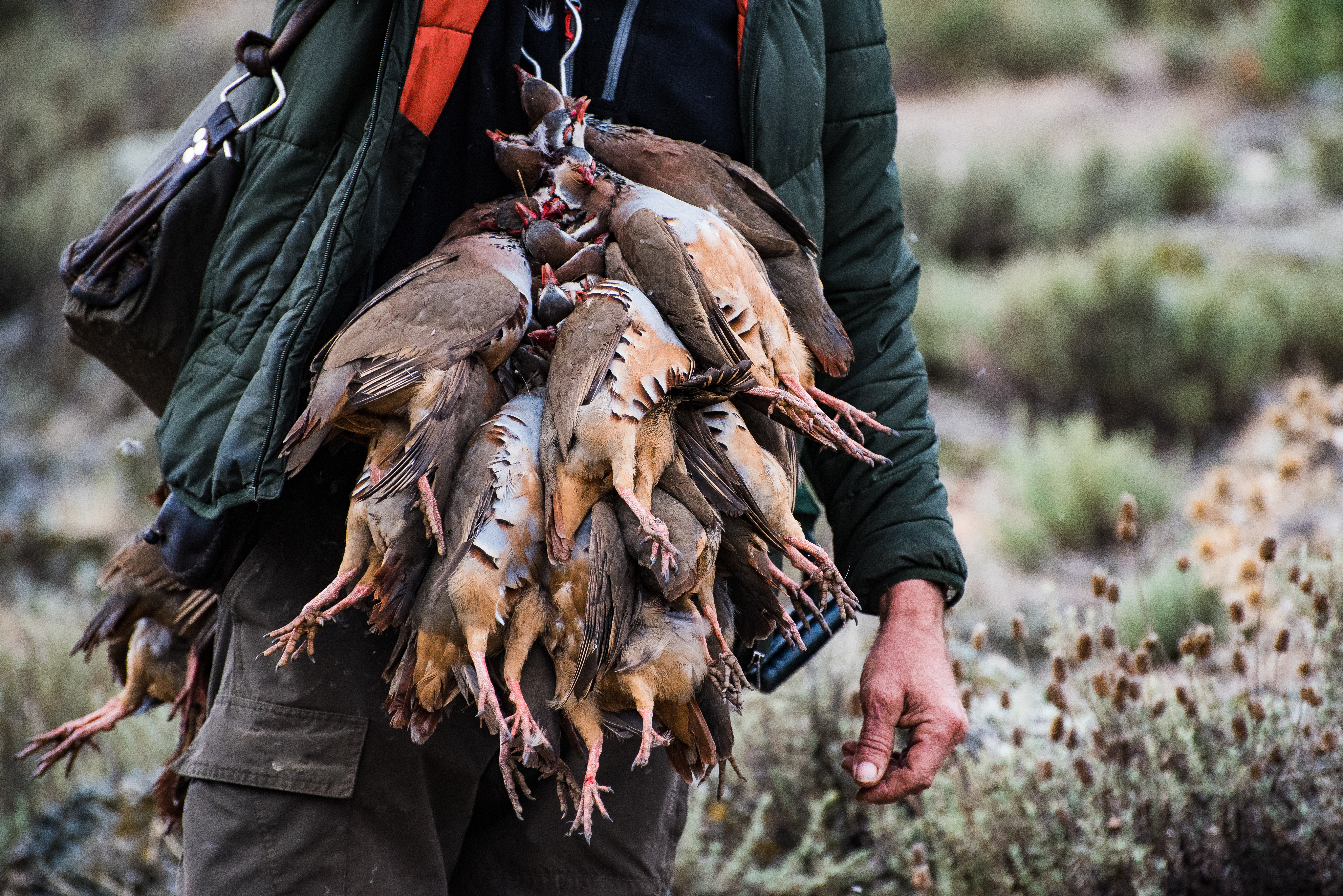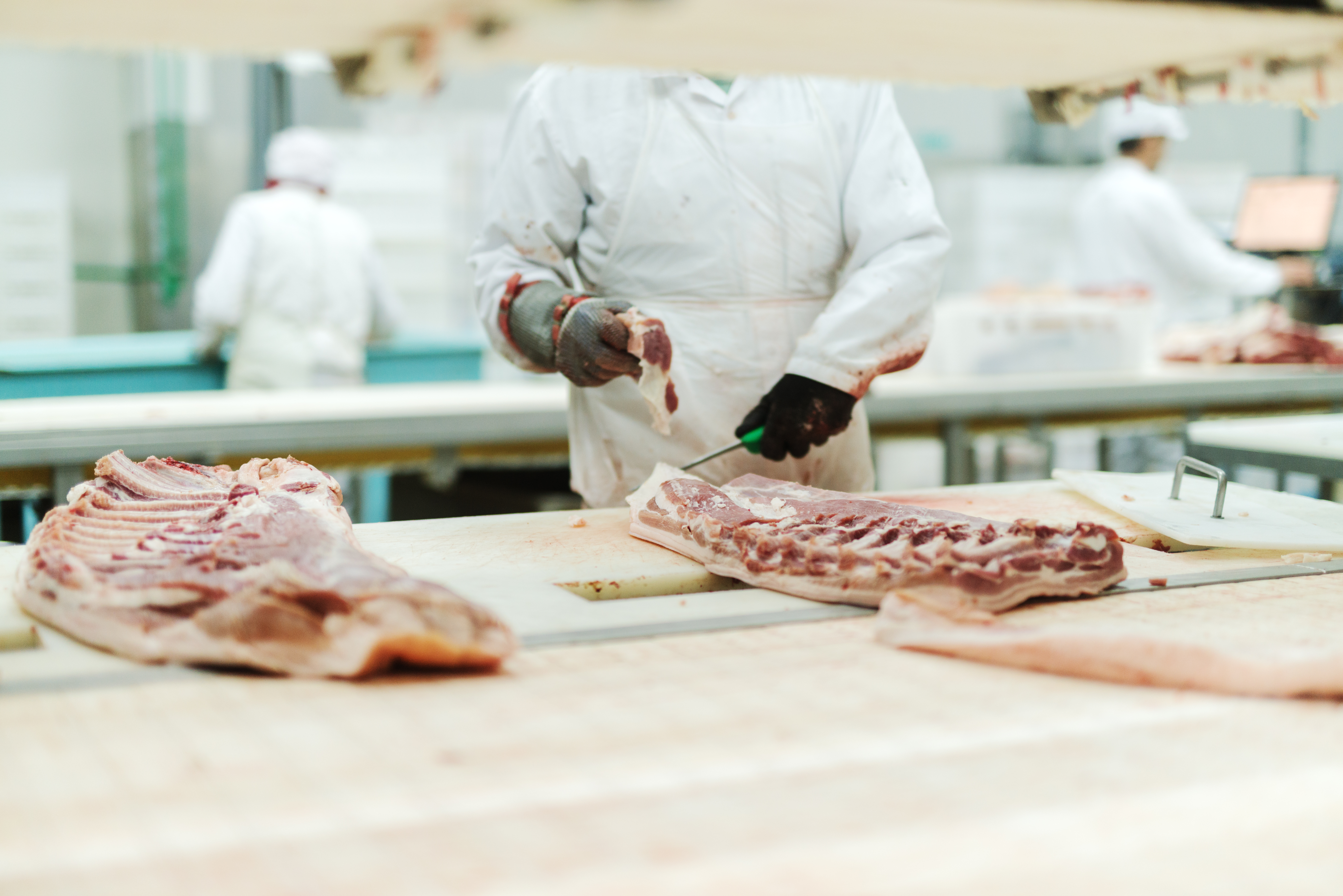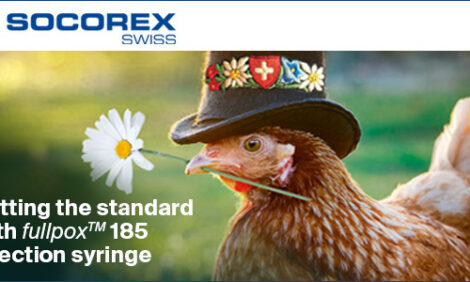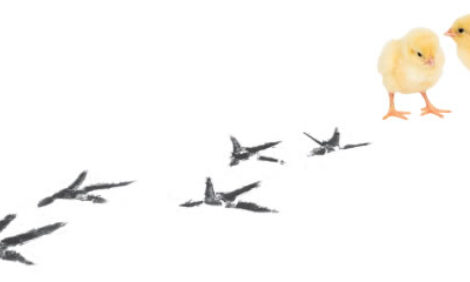



Legislators renew push to allow uninspected meat to enter food supply
Niche slaughter facilities that are exempt from regular inspection by federal and state regulators are now being touted as the solution to meat-supply-chain bottlenecks during the COVID-19 pandemic.Under proposed federal legislation, the Processing Revival and Intrastate Meat Exemption (PRIME) Act, little-known, “custom-exempt” slaughter facilities - which already enjoy the most lenient inspection requirements among slaughterhouses nationwide - would be permitted to slaughter animals, process carcasses, and sell meat directly to consumers without continuous government oversight.
Historically, custom-exempt slaughter operations were places for hunters to take “game” animal carcasses to be processed into meat. The expectation is that such meat is intended for personal use only, and by law it cannot not be sold, traded, or even given away.

The “exempt” in custom-exempt signifies that this type of slaughter is excused from routine inspection, unlike federally inspected and state-inspected slaughter, where government officials serve as on-the-ground monitors. With custom-exempt slaughter, inspectors need not be present during slaughter. In fact, inspection typically occurs only once a year. So, while custom-exempt slaughterhouses are expected to comply with federal food safety regulations, inspectors are not routinely on-site to enforce the law.
The rationale behind this minimal oversight is that consumers of the meat are generally aware of the product’s origins, and the food safety risk to the broader public is low since the meat is not being sold or otherwise distributed.
However, the PRIME Act would amend the Federal Meat Inspection Act to allow meat that is prepared at a custom-exempt establishment to be sold to unsuspecting consumers at restaurants, hotels, boarding houses, grocery stores, and more. This would expose many more people to unacceptable food safety risks and increase the potential for inhumane treatment of animals.
The purpose of meat inspection is to reduce the risk of foodborne illness. The USDA takes these health concerns seriously. Over the years, the department has forced dozens of companies to recall large amounts of meat and poultry products because they had not been properly inspected.
The Centers for Disease Control and Prevention estimates that each year, 48 million people get sick, 128,000 are hospitalized, and 3,000 die from foodborne diseases in the United States. Especially in view of the COVID-19 pandemic (which likely originated from the handling of animals for human consumption), the United States should be doing more to protect our food supply from foodborne illnesses and zoonotic diseases - not relaxing meat inspection requirements.
Custom-exempt plants, unlike plants that submit to federal or state meat inspection, have no routine government oversight for proper sanitation procedures. Moreover, animals killed in these establishments are provided a lower level of protection from cruelty and abuse than animals under state or federal inspection.

Federal and state enforcement records reveal a variety of horrific humane slaughter violations that occur - without penalty - when inspectors are absent. In one instance, a blind steer tripped over a disabled dairy cow during unloading, then fell into the gap between the unloading chute and the truck, causing the ramp to collapse. Among other reports at custom-exempt establishments: A pig was hacked to death with an ax - a clear violation of the federal humane slaughter law; a pen holding healthy sheep also contained several animals so crippled that they could barely rise or walk; and a moribund goat was killed by having his throat cut without first being rendered insensible to pain, an egregious violation that would likely result in suspension of operations at a state or federal plant.
The PRIME Act’s sponsor in the US House of Representatives is Rep. Thomas Massie (R-KY), a producer of grass-fed beef himself. In 2014, Brooksville Meat Fabrication, located in Massie’s congressional district, became the first slaughter plant ever to lose its federal inspection privileges solely based on repeat humane slaughter violations. According to USDA records, Massie intervened on Brooksville Meat’s behalf after it had received its fourth suspension for inhumane slaughter.
While federal inspection was indefinitely suspended at Brooksville Meat, it was allowed to continue operating as a custom-exempt establishment.
If the PRIME Act passes, plants with egregious humane slaughter and/or food safety violations would still be permitted to sell meat in the states where they are based, even though they have been deemed unfit for operation under routine federal or state inspection.
First introduced in 2015, the PRIME Act was pitched as a solution to the loss of thousands of slaughter facilities throughout the United States over more than two decades - the result of consolidation within the meat industry that left many farmers with few options for having their animals slaughtered locally. While there is a demonstrated need for additional slaughtering and processing alternatives for farmers in certain areas of the country, viable options exist today that don’t involve distributing uninspected meat to consumers.
About half of all states offer the option of state-inspected slaughter, and the USDA provides federally inspected mobile slaughter, both of which can service smaller farmers in a particular geographic region. The USDA also offers a program that permits state-inspected plants to operate in a manner similar to federally inspected facilities, allowing them to ship their products across state lines and abroad. Seven states (Indiana, Iowa, Maine, Missouri, North Dakota, Ohio, and Wisconsin) participate in this program.
Slaughter capacity is currently limited in some regions of the country, but the solution proposed by the PRIME Act is short sighted and could have serious repercussions for food safety and animal welfare. Uninspected meat has no place on American dinner plates.
Dena Jones is farm animal program director for the Animal Welfare Institute









